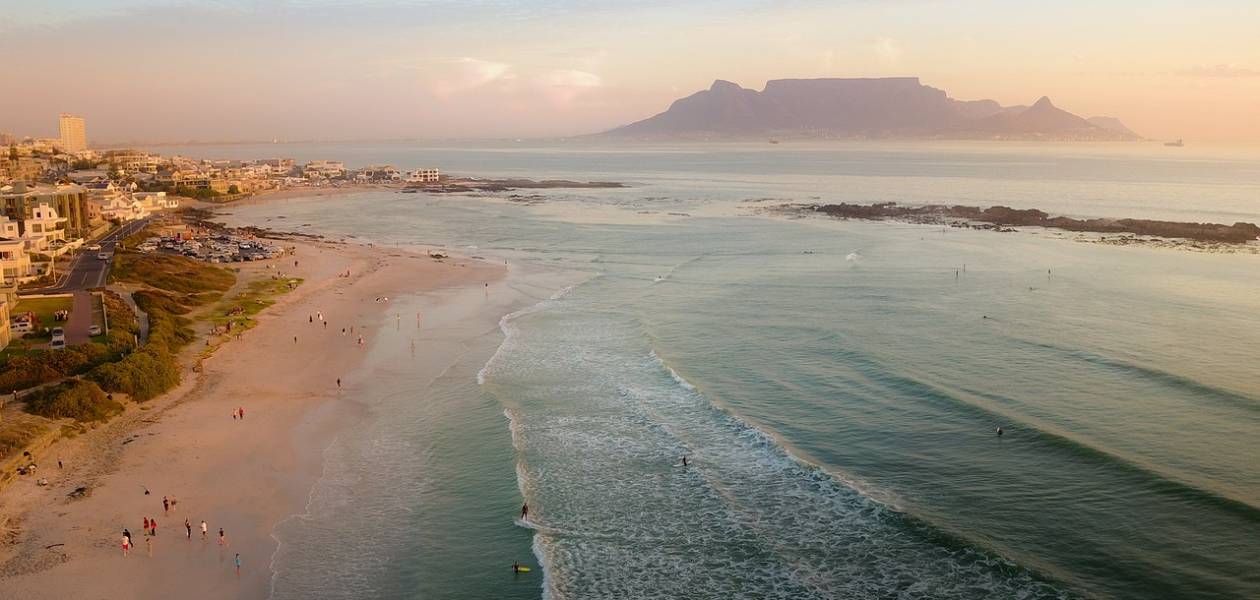
The Africa Ocean Forum, organized by the International Union for Conservation of Nature (IUCN), took place on June 24-25, 2024, in Nairobi, Kenya. With active participation from over 150 delegates, including policymakers, industry experts, scientists, and community leaders, the forum addressed critical issues in ocean conservation and governance.
The Africa Ocean Forum, organised by the International Union for Conservation of Nature (IUCN), took place on June 24 and 25, 2024 in Nairobi, Kenya, bringing together key IUCN members, partners and stakeholders from across the African continent to address critical issues in ocean conservation and governance in preparation for the Africa Conservation Forum (ACF), IUCN’s statutory regional gathering. The Africa Ocean Forum witnessed active participation of over 150 delegates, including policymakers, industry experts, scientists and community leaders.
The primary focus of the Forum was to discuss Africa’s ocean conservation and blue economy priorities, and identify pathways to implement them. It took stock of the Great Blue Wall Initiative. It looked at strengthening the role of Africa in global ocean governance, with a particular emphasis on promoting a regenerative blue economy, enhancing the participation of Indigenous Peoples and Local Communities (IPLCs), strengthening policy engagement and tackling marine plastic pollution.
Over the course of two days, participants engaged in interactive workshops, panel discussions, and strategy sessions, sharing insights and developing actionable strategies to address the pressing challenges facing Africa’s oceans.
The Forum thus held impact-oriented brainstorming on the following areas:
- Building a pan African marine IPLC movement across Africa, with a focus on exploring Collaborative Pathways for LMMA networking and impacts.
- Developing a Science, Research and Development Facility to power Africa’s Regenerative Blue Economy.
- Combating Plastic Pollution through Regional Collaboration and Innovation.
"As we all know, the majority of the African population is young and we need to engage them to lead the change. This an extremely important event, as for the first time African nations are working together towards a Call to ocean action in responding to climate change impacts, through combating plastic pollution. Today, we recognize that by working together, we can drive climate resilience for nature and people's future generations." - H.E Nilda Borges Da Mata Minister of Environment Sao Tome e Principe
Imèn Meliane, Vice President and Africa Councillor , IUCN quoted the forum as an opportunity to see " How can we Africanise the ocean space."
“People will stop putting plastic in the ocean when everybody understands how valuable the blue planet is and that the ocean is our home.” said Dr Grethel Aguilar, IUCN Director General
The Forum equally provided a space for deliberate deep dives into African leadership and engagement on the Biodiversity Beyond National Jurisdiction (BBNJ) Treaty, the INC process on developing an instrument to end plastic pollution, and on blue finance.
Dr. Obura emphasised the role of ocean science, highlighting that “The Great Blue Wall Initiative needs 100% sustainable seascapes including managing the entire local space for local fisheries i.e. Locally Managed Marine Areas and investing on how we can have healthy ecosystems for nature and people, also foster and regenerate indigenous knowledge in the continent.”
“Now is the time to think ahead, and build a robust platform for multilateral action to protect ocean health across generations on behalf of humankind and oceankind. At this point African countries need capacity-building support to develop the domestic processes to support rapid ratification and implementation of the new treaty.” Said the Director for Global Oceans at IUCN, Mina Epps
“Investing in young people is an investment in a future built on sustainability. This means to embrace a path led by nature-positive, science-focused, climate-resilient and community-driven principles” - Elgin Crea, Youth Representative and Board Member SYAH Seychelles.
"The Africa Ocean Forum perfectly aligns with the AICA vision and founding mission to galvanize the collective agency and action of Africa's IPLCs to speak with one voice on conservation issues that affect them. The establishment of a marine IPLC network in Africa, including LMMAs would perfectly play that role in the marine and coastal space" said Malidadi Langa, Chair of AICA (Alliance of Indigenous People and Local Communities)
"Effective waste management and handling marine pollution are crucial for protecting fishery resources and enhancing the blue economy. The shipping and maritime industry also plays a vital role in using cleaner energy and improving efficiency to safeguard our nature." said Susanna Menge from South Coast of Kenya
Sources : IUCN
About IUCN:
IUCN is a membership Union uniquely composed of both government and civil society organisations. It provides public, private and non-governmental organisations with the knowledge and tools that enable human progress, economic development and nature conservation to take place together. Created in 1948, IUCN is now the world’s largest and most diverse environmental network, harnessing the knowledge, resources and reach of more than 1,400 Member organisations and around 16,000 experts. It is a leading provider of conservation data, assessments and analysis. Its broad membership enables IUCN to fill the role of incubator and trusted repository of best practices, tools and international standards. IUCN provides a neutral space in which diverse stakeholders including governments, NGOs, scientists, businesses, local communities, indigenous peoples organisations and others can work together to forge and implement solutions to environmental challenges and achieve sustainable development. Working with many partners and supporters, IUCN implements a large and diverse portfolio of conservation projects worldwide. Combining the latest science with the traditional knowledge of local communities, these projects work to reverse habitat loss, restore ecosystems and improve people’s well-being
Posted on 2024-07-03 14:35








Comments